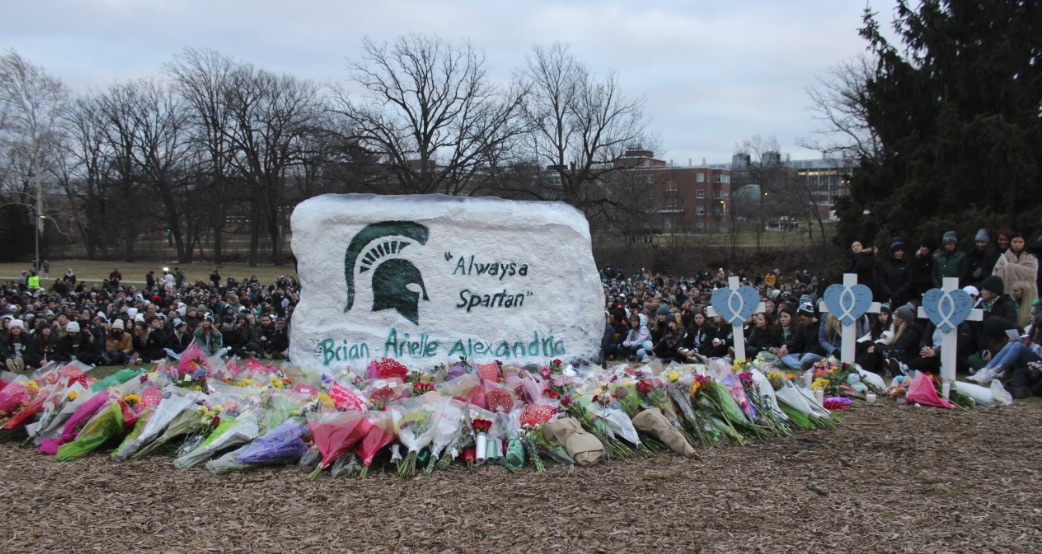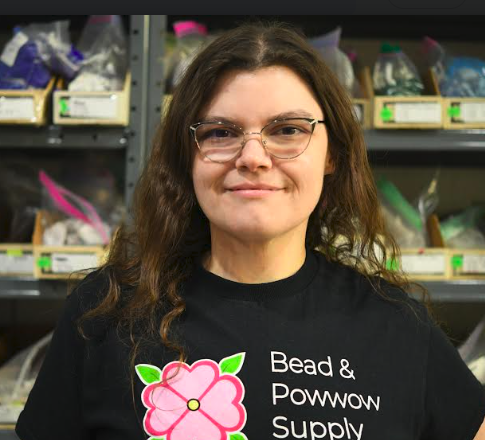
- Details
- By Ellie Mitchell
Guest Opinion. Since January, I’ve spent Tuesdays and Thursdays teaching in Berkey Hall, one of the buildings on Michigan State University’s campus where a gunman last Monday evening entered the university and killed three students and critically injured five others. Two students died in a Berkey Hall classroom.
I have nearly 40 students this semester, many of whom are Indigenous, representing many tribes, including most of the Anishinaabe bands in Michigan. Both classes' syllabi focus on Anishinaabe worldview and reading Indigenous scholarship. In the introduction class, students’ semester-long projects were intended to address the needs of a particular tribal community. In the fashion seminar, students were supposed to go to tribal community events and engage in their creativity. This past week, my fashion class was going to visit a tribal museum.
I use the past-tense because the situation changed on Monday, February 13, 2023. That evening, I was at home on my reservation, 60 miles north of campus, preparing for class the next morning. I saw an alarming email alert and then relatives started calling to ask if I was okay. Shots had been fired near Berkey Hall at MSU; those on campus were told by police to run, hide, or fight. I announced on my social media that I was safe at home. I followed the news updates for hours, worried for my students and colleagues.
I learned that two deaths occurred in a classroom down the hall from where I teach. A colleague experienced the nightmare horror of seeing his students die. Families are mourning their Spartans, and others await news of their injured children. I have cried for them and for the MSU students, staff, faculty who will forever carry this trauma. I cry knowing that 14 hours later, I would have been in that building.
My tribal community has lost many people. In the week prior, we lost two elders and a young person, who was the third young cousin my family has buried this winter. Last November, my tribe suffered through gun violence that killed three and injured two. This has been one of the most heart-wrenching winters I remember. I am even more heartsick to think that, between me and my students, my community might have had more funerals this week.
All my students face hardships, but the journey for Native students is fraught. It is difficult for people who carry the legacy of boarding schools to leave home for education. Natives remember that when our children leave for school, not all come home. My heart is heavy knowing how close we were to that being true once again for so many tribal communities.
Over a decade ago, I started a business, Bead & Powwow Supply. During that time, my tribe has experienced many tragedies, losing young people and elders alike. I have learned how to lead a team through that, adjusting schedules for funerals, incorporating teachings of well-being, shutting down as needed, all while trying to get supplies to beaders. I did not think this skill set would be needed at the university. But now, I am grateful that I agreed to teach this semester. If I can run a business on the rez, then surely, I can lead a class through this.
As an Anishinaabe person, I have learned how to navigate trauma. As an instructor, I have tried to shield my students from the harsh realities of Indigenous life. We read about MMIW, but I didn’t talk about the people stolen from my community. We discussed Native health, but I didn’t talk about my friends and relatives who died by suicide or overdose. I came to MSU, in part, to escape some of the violence of reservation life; I never thought campus would feel so dangerous.
I am not sure if I’ll teach again for future semesters. This does not feel like a good way to start a career change. As I revamp my syllabi to return to class, I remember one of the most important lessons my tribe has taught me: move with the flow of events, don’t hold firm to an ideal plan. I suppose it works. After all, survival and response to trauma is what Indigenous Studies is all about.

This guest opinion was written by Ellie Mitchell, an enrolled citizen of the Saginaw Chippewa Indian Tribe of Michigan and is of the Eagle Clan. She is the owner of Bead & Powwow Supply and works at Michigan State University as a tribal liaison in the Native American Institute within the University Outreach & Engagement program.
Help us defend tribal sovereignty.
At Native News Online, our mission is rooted in telling the stories that strengthen sovereignty and uplift Indigenous voices — not just at year’s end, but every single day.
Because of your generosity last year, we were able to keep our reporters on the ground in tribal communities, at national gatherings and in the halls of Congress — covering the issues that matter most to Indian Country: sovereignty, culture, education, health and economic opportunity.
That support sustained us through a tough year in 2025. Now, as we look to the year ahead, we need your help right now to ensure warrior journalism remains strong — reporting that defends tribal sovereignty, amplifies Native truth, and holds power accountable.
 The stakes couldn't be higher. Your support keeps Native voices heard, Native stories told and Native sovereignty defended.
The stakes couldn't be higher. Your support keeps Native voices heard, Native stories told and Native sovereignty defended.
Stand with Warrior Journalism today.
Levi Rickert (Potawatomi), Editor & Publisher
